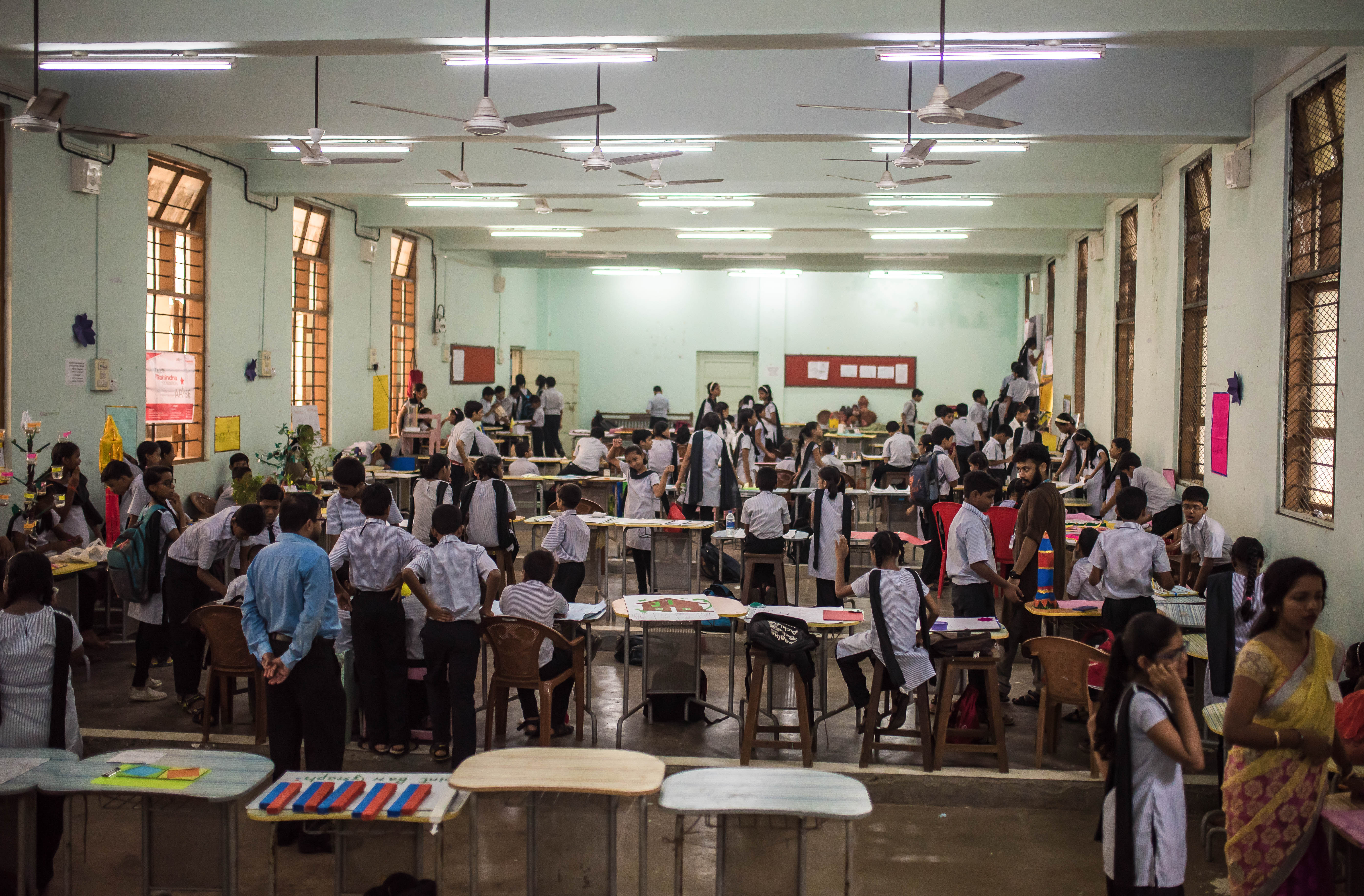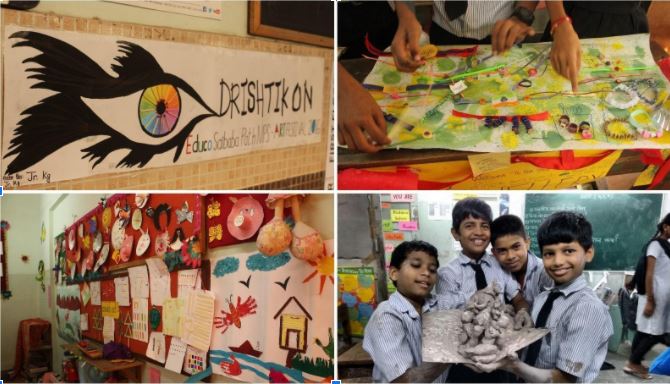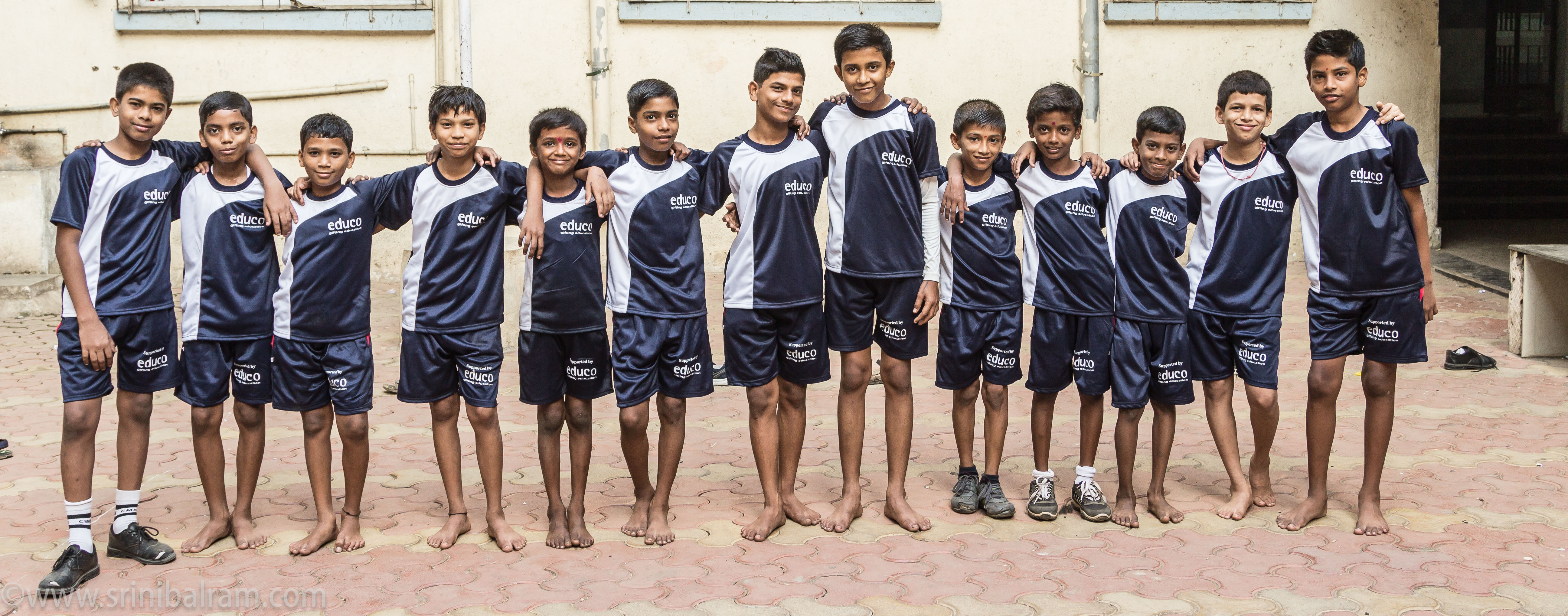- cognitive capacities
- ‘foundational capacities ’of literacy and numeracy
- ‘higher-order’ cognitive capacities - critical thinking & problem solving
- Social, ethical, and emotional capacities and dispositions

Foundations of New Pedagogical Structure
Experiential & competency based learning to be adopted, including hands-on learning, arts-integrated and sports-integrated education, story-telling-based pedagogy, among others, as standard pedagogy within each subject, and with explorations of relations among different subjects.
Art-integration
Art-integration is a cross-curricular pedagogical approach that utilizes various aspects and forms of art and culture as the basis for learning of concepts across subjects.


Sports-integration
Sports-integration is another cross-curricular pedagogical approach that utilizes physical activities including indigenous sports, in pedagogical practices to help in developing skills such as collaboration, self-initiative, self-direction, self-discipline, teamwork, responsibility, citizenship, etc
- Going beyond the textbook
- Relate education to day to day life
The revised National Curriculum Framework (NCF) opens with a quotation from Rabindranath Tagore’s essay, Civilisation and Progress, in which the poet reminds us that a ‘creative spirit’ and ‘generous joy’ are key in childhood, both of which can be distorted by an unthinking adult world.
Seeking guidance from the Constitutional vision of India as a secular, egalitarian and pluralistic society, founded on the values of social justice and equality, certain broad aims of education have been identified in this document. These include independence of thought and action, sensitivity to others’ well-being and feelings, learning to respond to new situations in a flexible and creative manner, predisposition towards participation in democratic processes, and the ability to work towards and contribute to economic processes and social change. For teaching to serve as a means of strengthening our democratic way of life, it must respond to the presence of first generation school-goers, whose retention is imperative owing to the Constitutional amendment that has made elementary education a fundamental right of every child.
Ensuring health, nutrition and an inclusive school environment empowering all children in their learning, across differences of caste, religion, gender, disability, is enjoined upon us by the Constitutional amendment. The fact that learning has become a source of burden and stress on children and their parents is evidence of a deep distortion in educational aims and quality. To correct this distortion, the present NCF proposes five guiding principles for curriculum development:
- Connecting knowledge to life outside the school;
- Ensuring that learning shifts away from rote methods;
- Connecting knowledge to life outside the school;
- Making examinations more flexible and integrating them with classroom life;
- Nurturing an overriding identity informed by caring concerns within the democratic polity of the country.
All our pedagogical efforts during the primary classes greatly depend on professional planning and the significant expansion of Early Childhood Care and Education (ECCE). Indeed, the revision of primary school syllabi and textbooks needs to be undertaken in the light of the well-known principles of ECCE.
The fact that knowledge is constructed by the child implies that curricula, syllabi and textbooks should enable the teacher in organising classroom experiences in consonance with the child’s nature and environment, and thus providing opportunities for all children. Teaching should aim at enhancing children’s natural desire and strategies to learn.
Knowledge needs to be distinguished from information, and teaching needs to be seen as a professional activity, not as coaching for memorisation or as transmission of facts. Activity is the heart of the child’s attempt to make sense of the world around him/her. Therefore, every resource must be deployed to enable children to express themselves, handle objects, explore their natural and social milieu, and to grow up healthy.
If children’s classroom experiences are to be organised in a manner that permits them to construct knowledge, then our school system requires substantial systemic reforms (Chapter 5) and reconceptualisation of curricular areas or school subjects (Chapter 3) and resources to improve the quality of the school ethos (Chapter 4).In all the four familiar areas of the school curriculum, i.e. language, mathematics, science and social sciences, significant changes are recommended with a view to making education more relevant to the present day and future needs, and in order to alleviate the stress with which children are coping today.
This NCF recommends the softening of subject boundaries so that children can get a taste of integrated knowledge and the joy of understanding. In addition, plurality of textbooks and other material, which could incorporate local knowledge and traditional skills, and a stimulating school environment that responds to the child’s home and community environment, are also suggested.
In language, a renewed attempt to implement the three-language formula is suggested, along with an emphasis on the recognition of children’s mother tongues, including tribal languages, as the best medium of education. The multilingual character of Indian society should be seen as a resource to promote multilingual proficiency in every child, which includes proficiency in English. This is possible only if learning builds on a sound language pedagogy in the mother tongue. Reading and writing, listening and speech, contribute to the child’s progress in all curricular areas and must be the basis for curriculum planning. Emphasis on reading throughout the primary classes is necessary to give every child a solid foundation for school learning.
The teaching of mathematics should enhance the child’s resources to think and reason, to visualise and handle abstractions, to formulate and solve problems. This broad spectrum of aims can be covered by teaching relevant and important mathematics embedded in the child’s experience. Succeeding in mathematics should be seen as the right of every child. For this, widening its scope and relating it to other subjects is essential.
The infrastructural challenge involved in making available computer hardware, and software and connectivity to every school should be pursued.
The teaching of science should be recast so that it enables children to examine and analyse everyday experiences. Concerns and issues pertaining to the environments should be emphasised in every subject and through a wide range of activities involving outdoor project work.
In the social sciences, the approach proposed in the NCF recognises disciplinary markers while emphasising integration on significant themes, such as water. A paradigm shift is recommended, proposing the study of the social sciences from the perspective of marginalised groups. Gender justice and a sensitivity towards issues related to SC and ST communities and minority sensibilities must inform all sectors of the social sciences. Civics should be recast as political science, and the significance of history as a shaping influence on the child’s conception of the past and civic identity should be recognised.
This NCF draws attention to four other curricular areas: work, the arts and heritage crafts, health and physical education, and peace. In the context of work, certain radical steps to link learning with work from the pre-primary stage upwards are suggested on the ground that work transforms knowledge into experience and generates important personal and social values, such as self-reliance, creativity and cooperation. It also inspires new forms of knowledge and creativity. At the senior level, a strategy to formally recognise out-of-school resources for work is recommended to benefit children who opt for livelihood-related education
Art as a subject at all stages is recommended, covering all four major spheres, i.e. music, dance, visual arts, and theatre. The emphasis should be on interactive approaches, not instruction, because the goal of art education is to promote aesthetic and personal awareness and the ability to express oneself in different forms. The importance of India’s heritage crafts, both in terms of their economic and aesthetic values, should be recognised as being relevant to school education.
The child’s success at school depends on nutrition and well-planned physical activity programs, hence resources and school time must be deployed for the strengthening of the midday meal program. Special efforts are needed to ensure that girls receive as much attention in health and physical education programs as boys from the preschool stage upwards.
Peace as a precondition for national development and as a social temper is proposed as a comprehensive value framework that has immense relevance today in view of the growing tendency across the world towards intolerance and violence as a way of resolving conflicts. The potential of peace education for socialising children into a democratic and just culture can be actualised through appropriate activities and a judicious choice of topics in all subjects and at all stages. Peace education as an area of study is recommended for inclusion in the curriculum for teacher education.
The school ethos is discussed as a dimension of the curriculum as it predisposes the child towards the aims of education and strategies of learning necessary for success at school. As a resource, school time needs to be planned in a flexible manner. Locally planned and flexible school calendars and timetables which permit time slots of different lengths required for different kinds of activities, such as project work and outdoor excursions to natural and heritage sites, are recommended.
Efforts are required for preparing more learning resources for children, especially books and reference materials in regional languages, for school and teacher reference libraries, and for access to interactive rather than disseminative technologies. The NCF emphasises the importance of multiplicity and fluidity of options at the senior secondary level, discouraging the entrenched tendency to place children in fixed streams, and limiting opportunities of children, especially from the rural areas.
Academic planning and leadership at the school level are essential for improving quality and strategic differentiation of roles is necessary at block and cluster levels.
In teacher education, radical steps are required to reverse the recent trend towards the dilution of professional norms as recommended by the Chattopadhyaya Commission (1984). Pre-service training programs need to be more comprehensive and lengthy, incorporating sufficient opportunities for observation of children and integration of pedagogic theory with practice through school internship.
Examination reforms constitute the most important systemic measure to be taken for curricular renewal and to find a remedy for the growing problem of psychological pressure that children and their parents feel, especially in Classes X and XII. Specific measures include changing the typology of the question paper so that reasoning and creative abilities replace memorisation as the basis of evaluation, and integration of examinations with classroom life by encouraging transparency and internal assessment. The stress on pre-board examinations must be reversed, and strategies enabling children to opt for different levels of attainment should be encouraged to overcome the present system of generalised classification into ‘pass’ and ‘fail’ categories.
Finally, the document recommends partnerships between the school system and other civil society groups, including non-governmental organisations and teacher organisations. The innovative experiences already available should be mainstreamed, and awareness of the challenges implied in the Universalisation of Elementary Education (UEE) should become a subject of wide-ranging cooperation between the state and all agencies concerned about children.
Click here: http://www.ncert.nic.in/rightside/links/pdf/framework/english/nf2005.pdf
“RTE Act provides the children of India, in the age group 6 to 14 years, a fundamental right to free and compulsory education. With the enactment of RTE Act, India joins the league of over 130 countries that have legal guarantees to provide free and compulsory education to children. According to the UNESCO’s ‘Education for All Global Monitoring Report 2010’, 135 countries have constitutional provisions for free and non-discriminatory education for all. It also cited a 2005 World Bank survey, which stated that only 13 countries impart primary education totally free of cost. In majority of the countries, some direct costs have been reported though no tuition fees are charged.“
To read more about the Right to Education Act: Click here